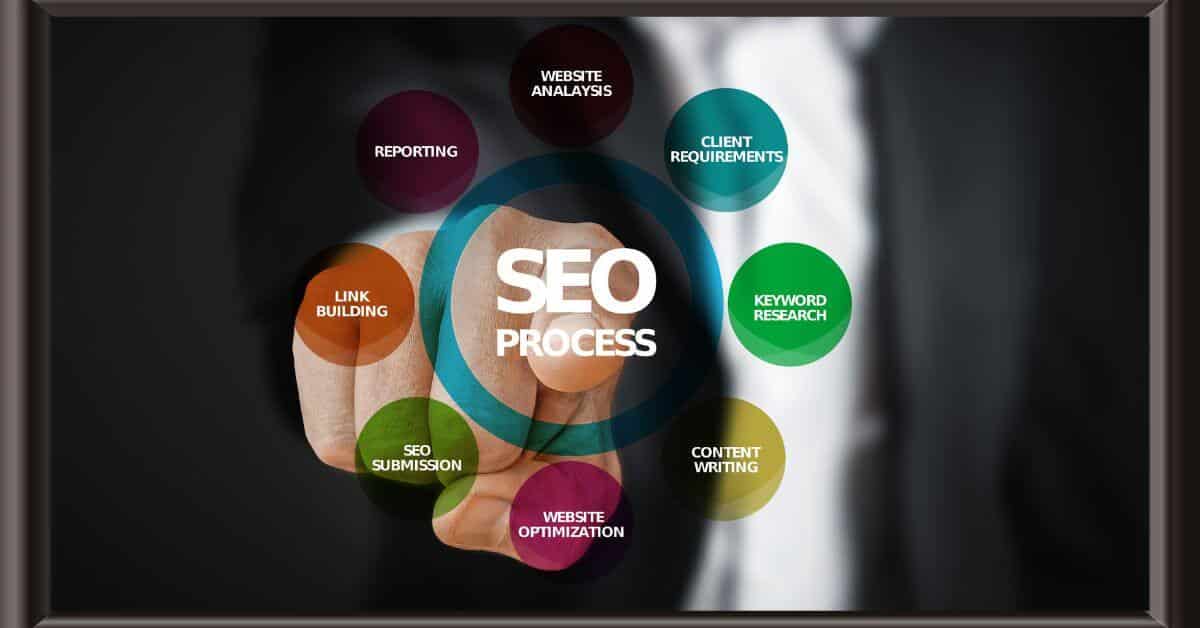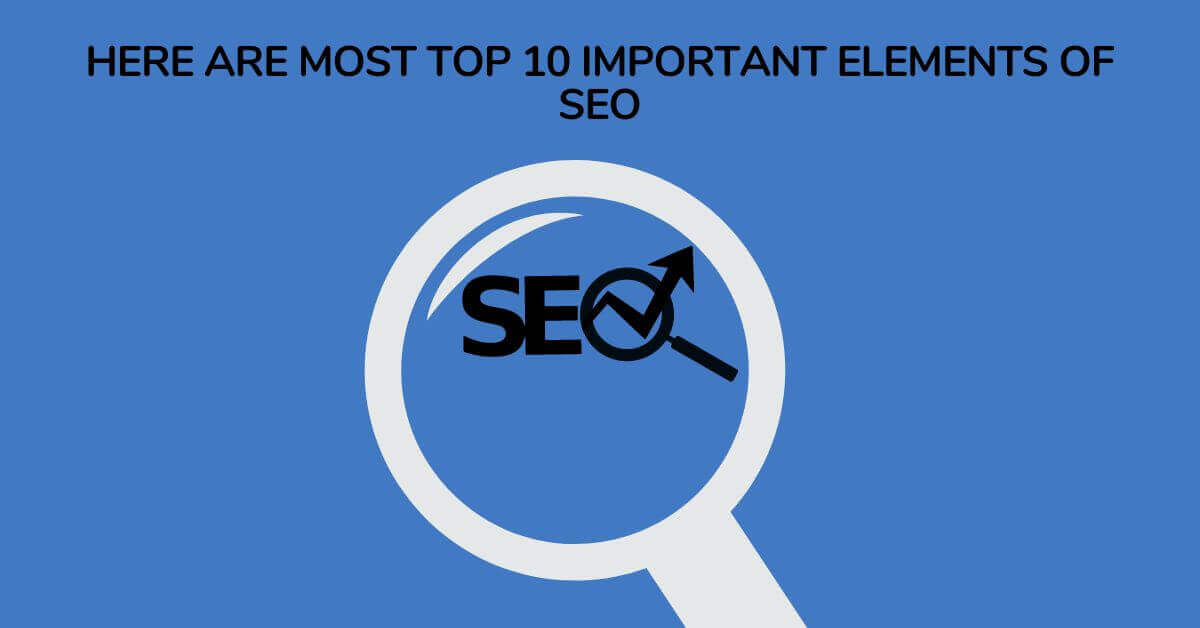Table of Contents
ToggleIntroduction:- On-Page Optimization
On-page SEO (On-Site Optimization) means optimizing your website’s pages to improve rankings and user experience. On the other hand, Off-page SEO refers to optimizing for elements outside your site. It includes backlinks or social media mentions.
Google’s algorithm is updated regularly, improving its understanding of user intent and overall user experience once a user arrives on a page. That is why it is critical to learn SEO and stay active with best practices. Furthermore, Google prioritizes user experience, so it’s essential to include on-page SEO practices in your overall strategy.
A well-optimized page also assists Google in understanding the content, which allows it to organize and rank your page. Essentially, you are helping Google to do its job better.
Your Content should contain the keywords or match the keywords of the user’s query or search, but there is a fine line that one needs to understand, and don’t overuse the keywords or overlook the content quality. Finally, content should fulfill the user’s intent.
Basics of Search Engine Optimization
Search engine optimization is the process of affecting the visibility of a website or a web page in a search engine naturally. Organic traffic is free traffic that your website receives from links through Google or other search engines
This type of traffic is precious because it doesn’t cost you anything to get it. However, the downside to organic traffic is that it takes time to build up a large enough fanbase to reap its rewards.
How did On-Site Optimization become so popular?
On-page SEO is essential because it assists search engines in understanding your website and its content and determining whether it is relevant to a searcher’s query. As search engines improve, there is a greater emphasis on relevance and semantics in search engine results pages (SERPs).
With its complex algorithms, Google is now much better at understanding what users are looking for when entering a query. It provides search results relevant to the user’s question (informational, shopping, navigational).
Adapting this change is critical – you can do so by ensuring that your website and its content are well-optimized according to the latest best practices. Furthermore, you cannot simply disregard on-page SEO because you have more control when optimizing for on-site elements than off-page SEO, which comprises external signals (i.e., backlinks). If you put effort into on-page strategies, you will see an increase in traffic and search visibility.
Follow These Top 15 Essential On-Page SEO Factors for On-Page Optimization
This guide will walk you through the most important on-page SEO elements. Paying close attention to these areas will help you improve your content, page authority, rankings, traffic, and conversions.
1:- E-A-T
One of the most important on-page SEO factors is E-A-T. E-A-T stands for Expertise, Authoritativeness, and Trustworthiness. This means that your articles should be written by experts on the topic, they should be a reliable source of information, and readers should feel like they can trust the information on the site. All of these factors will help your site rank higher on search engine results pages.
2:- Keywords
Keywords are one of the most important aspects of on-page SEO. They help search engines understand what your page is about and how it should be ranked in relation to other pages. When choosing keywords, you should focus on those that are relevant to your content and have a high search volume. You should also avoid using too many keywords, as this can result in keyword stuffing, which can lead to your page being penalized by search engines.
3:- SEO Writing
One of the most important on-page SEO factors is writing quality content. This means creating informative, keyword-rich content that is enjoyable to read. Your content should be well-written and provide value to your readers. In addition, your website should be easy to navigate and have a clean design. These factors will help search engines index your website and improve your ranking.
4:- Visual Assets
One of the most important on-page SEO factors is visual assets. This includes things like images, videos, and infographics. They can help to break up text and make your content more visually appealing. Good visual assets can also help to improve your click-through rate and time on the page. If you want your website to rank well in search engines, make sure to include plenty of high-quality visual assets.
5:- Page Title
The page title of your website is one of the most important elements when it comes to SEO. It’s the first thing that users see, so you want it to be descriptive and memorable. You probably know how important page titles are for your website from an SEO point of view. They are one of the first things users see when they visit your site, so you want them to be as memorable as possible.
Users won’t hesitate to leave your site if they don’t find what they are looking for in a couple of seconds. That is why optimal page title implementation is crucial if you want users to keep coming back. With that in mind, here are some tips on how you can optimize the page title on your website.
5 Tips to Optimize the Page Title on Your Website
Make your page title as descriptive as possible
The first thing you should do is make sure that your page title is as descriptive as possible. The page title should communicate exactly what the page is about. If it’s too vague or if it doesn’t make sense from a user’s point of view, you can expect lower click-through rates and lower conversion rates. It’s a common mistake to add a title that is too generic.
Try using your keywords in the page title
If your page title isn’t descriptive enough, you can always add keywords to the title. It’s important to note that you don’t want to go overboard with this. Ideally, you want your page title to be a mix between a description of the page and a few keywords. This way, you will ensure that your page is found by users who use different search engines and devices, but you will also be able to rank for those keywords.
Integrate Anchor Text and Rich Snippets
If you want to take your page title optimization to the next level, you can always integrate anchor text and rich snippets into your page title. By doing this, you can increase click-through rates, conversion rates, and rankings.
Use UPPERCASE to highlight the most important words
If there are some words that you want to highlight and make sure that users understand are the most important ones, you can always use UPPERCASE. This is a common practice that works well, especially in online forums and social media platforms
Don’t forget the metadata
One thing that most webmasters forget about is the metadata. When you create a page on your website, you can add metadata to it. This includes the title, a description, and keywords. The title and description are the two most important elements on your page. They will be shown on the search engine results page and on social media platforms if your page is shared there.
6:- Meta Description
Meta descriptions have been a vital optimization point since the early days of SEO. Meta descriptions, meta tags that describe what the page is about, are frequently displayed in the SERPs beneath the page title.
While Google claims that meta descriptions do not affect rankings.
Correct meta description optimization can help improve:
- Click-through rate (CTR).
- Perception of the outcome’s quality.
- Headlines
7:- Image Enhancement
Adding images to your web pages is an excellent way to make them appealing. However, not all photos are created equal, and some can slow down your website. Image optimization will help you make the most of a valuable SEO asset. Image optimization has numerous advantages, including:
Additional opportunities for ranking:
- It improved the user experience.
- Page load times are faster if all images have ALT TEXT.
- Use images that support your content.
8:- Geotagging for Local Search
Geotagging is a technique used to add location information to user-generated content. It can be used in social media posts, blog posts, and even website footers. The benefits of geotagging are mostly felt in local searches. It will help to rank the business depending on where they are physically located and increase visibility with web searches.
Geotagging is not just used for location-specific searches but also has other benefits such as targeted marketing and increased conversion rates.
9:- Site Speed
Page load time is a key factor in on-page SEO. It’s also the single most important element of SEO optimization. Speed is one of the most essential factors in any site’s search engine optimization. Google has been advocating for a while now to make sites load faster and “Google’s research shows that there are three seconds until somebody abandons their session or clicks away.” To learn more about web pages and speed test your site go through on PageSpeed insights tool.
The average person has an attention span of eight seconds and approximately half that time is spent looking at the page content, with less than a second spent looking at the web page’s design elements, such as headlines, logos, and site maps. Google ranks your site higher if you have a fast loading speed because consistency in page load time is critical for visitors who want to complete what they start on your website.
10:- Responsive Design
As websites start to look different on different screen sizes, it’s important to make sure that your website is still responsive. When a website is not responsive, it doesn’t look the same or function properly on different screen sizes. This can lead to lower engagement rates and higher bounce rates among visitors.
11:- URL
A URL is simply a sequence of usually hexadecimal characters or a pathing string when the information is stored on some type of digital media. short and precise URLs are said to be optimized because they are easier to remember than long and complicated ones. They should also depend on what content resides on the page.
Optimizing your URLs can be tricky in some cases. The challenge is that long words could be at the end of the line, spanned across multiple lines, or between different levels of an URL hierarchy. avoid-(99999) These character sequences confuse the system which relies on jumbled words at random for rendering search engine indices for better ranking boosts.
The point which helps in on-page SEO
- Try to include your primary keyword in the URL for a better understanding of users and search engines.
- Consider the user intent and follow what are user trying to know in short and simple words.
- Use hyphens between words like if the page is www.example.com/on-page-SEO
12:- Links
The importance of links in the era of SEO cannot be stressed enough. Links are integral to the ranking algorithm and can give a website a ranking boost if done correctly. One of the most important on-page SEO factors is links. If links are not optimized, Google will not be able to pick them up.
The number of links on a page does not matter as much as their quality does. Websites should try to have fewer, but high-quality backlinks rather than more low-quality ones from untrustworthy sources like forums or other websites unrelated to their own content and domain name.
13:- Catchy Headlines
Then begin creating catchy headlines. Coming up with a title for a blog post may appear to be too simple, but a great headline can mean the difference between a click and an impression. For your headlines to stand out on the SERPs, they must pique users’ interest and entice them to click through and read the rest of the content. Improve website content to rank better in search engines.
14:- Header Tags
Basically, header tags are the structure of a page or post that is used for the sequence of content. This also helps in the user’s understanding of his query. Header tags (H1 to H6) are HTML elements that are helpful in SEO and the readability of content.
They can have an indirect impact on your rankings by:
- Visitors should enjoy the content and appreciate the same.
- We are providing search engines with keyword-rich context about your content.
- SEO Writing entails creating optimized content for both search engines and users.
- Writing solid SEO content requires a strategy beyond keyword research and filling in the blanks.
- Producing content for the sake of creating content will not suffice.
- Remember that you’re creating content for people, so it must be high quality, substantial, and relevant.
15:- Audit of Content
Most content creators are so focused on creating new content that they overlook the importance of auditing their existing content. And this is a blunder.
Auditing your existing content is essential because it allows you to:
- Examine whether your current content meets its objectives and generates a return on investment.
- Determine whether the information in your content is still current or has become outdated (or even obsolete).
- Determine which types of content are most effective for you.
- Keeping users engaged is a significant challenge in and of itself, but it is certainly doable. Focus on site speed, user experience, and content optimization, among others, to increase user engagement.
On-Page SEO v/s. Off-Page SEO
SEO (Search Engine Optimization) is a type of marketing that highlights the importance of growing search engine ranking, traffic, and relevance. On-page SEO is the process of improving your website’s ranking in search engine results in pages with changes to your site’s code. Off-page SEO is building links from websites outside your own to increase your site’s visibility and credibility with search engines.
Tools for On-site Optimization
There is a list of many, but again, it depends upon you what to use. Do a proper analysis and find your requirement first. After that, pick the suitable one. The SEO PORTION Team will surely guide you for the best and serve your website with the best tools like Ahrefs, Moz, SEMRUSH, etc.
Conclusion
Users can use an SEO tool to ease down their work, but the essential thing one should understand is the usage of On-site Optimization. On-Site Optimization makes your website rank better and always presents it with quality content.
Good luck
SEO Portion is there to resolve all your queries and we would love to clear all your doubts. Our vision is to create awareness and help you with SEO and how to make your business grow digitally.
Share this article with your family and friends and put your initiative towards it.
Thank you for reading our blog.
Regards:- “SEO Portion”


